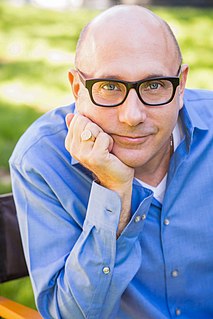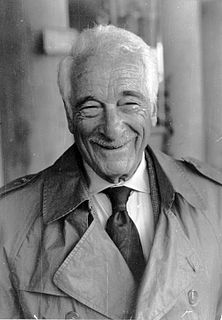A Quote by Isidor Isaac Rabi
You know that, according to quantum theory, if two particles collide with enough energy you can, in principle, with an infinitesimal probability, produce two grand pianos.
Related Quotes
The incomplete knowledge of a system must be an essential part of every formulation in quantum theory. Quantum theoretical laws must be of a statistical kind. To give an example: we know that the radium atom emits alpha-radiation. Quantum theory can give us an indication of the probability that the alpha-particle will leave the nucleus in unit time, but it cannot predict at what precise point in time the emission will occur, for this is uncertain in principle.
String theory?[pause] It closed the conceptual gulp between relativity and quantum mechanics. It postulates that subatomic particles are not points, but strings, about one planck length long. The rate at which strings vibrate can generate the properties of all known particles. Huh? How did I know that?
It seems significant that according to quantum physics the indestructibility of energy on one hand which expresses its timeless existence and the appearance of energy in space and time on the other hand correspond to two contradictory (complementary) aspects of reality. In fact, both are always present, but in individual cases the one or the other may be more pronounced.
Quantum events have a way of just happening, without any cause, as when a radioactive atom decays at a random time. Even the quantum vacuum is not an inert void, but is boiling with quantum fluctuations. In our macroscopic world, we are used to energy conservation, but in the quantum realm this holds only on average. Energy fluctuations out of nothing create short-lived particle-antiparticle pairs, which is why the vacuum is not emptiness but a sea of transient particles. An uncaused beginning, even out of nothing, for spacetime is no great leap of the imagination.
I favour an interpretation of quantum mechanics (the 'Everett interpretation') according to which reality branches in any chancy quantum situation. On this view, Schrödinger's set-up will give rise to in two future branches of reality, one with a live cat, and one with a dead cat - and the talk of '50% chances' just indicates that the two branches are both equally real futures of the cat that originally entered the box.
If you bang two electrons together with enough energy, you produce protons. If there are no independent laws, then all the properties of protons must somehow be 'known' by the electrons. By extension, every elementary particle must carry around enough information to produce the entire universe. I find that difficult to believe.
Just take the lack of presence of F1 in the United States. In theory - and logically - you would have an East Coast Grand Prix, a West Coast Grand Prix, and I think you should have a street race in Detroit - it is still the motor capital of the US. You stay in the US for four weeks and could have two to three races, certainly two.

































